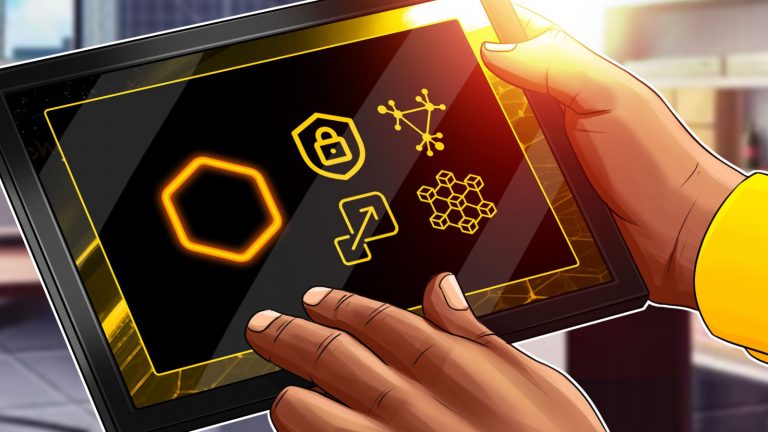
DAOs or Decentralized Autonomous Organizations are a new form of governance and collaboration that enable people to coordinate and cooperate without intermediaries, hierarchies, or borders. DAOs are essentially communities that share a common vision and mission, and that operate according to a set of rules encoded in code.
DAOs can be created for any purpose, such as managing a protocol, a platform, a fund, a social movement, or a collective art project. DAOs are transparent, democratic, and resilient, and they have the potential to unleash the creativity and innovation of millions of people around the world.
What are the benefits of DAOs?
DAOs offer many benefits over traditional organizations and institutions, such as:
Register for Tekedia Mini-MBA edition 18 (Sep 15 – Dec 6, 2025): registration continues.
Tekedia AI in Business Masterclass opens registrations.
Join Tekedia Capital Syndicate and co-invest in great global startups.
Register for Tekedia AI Lab: From Technical Design to Deployment.
Autonomy: DAOs are self-governing and self-sustaining. They do not depend on any external authority or entity to function or exist. They are controlled by their members, who can join or leave at any time, and who can propose and vote on decisions that affect the DAO. DAOs can also interact with other DAOs and protocols in a peer-to-peer manner, creating a network of decentralized cooperation.
Efficiency: DAOs eliminate the need for intermediaries, middlemen, and bureaucracy. They reduce the costs and frictions of coordination and transactions. They enable faster and cheaper execution of tasks and projects. They also allow for more experimentation and iteration, as well as more flexibility and adaptability to changing circumstances.
Inclusivity: DAOs are open and accessible to anyone who shares their vision and values. They do not discriminate based on identity, location, or background. They empower anyone to contribute their skills, ideas, and resources to the DAO, and to benefit from its outcomes. They also foster a sense of community and belonging among their members, who can communicate and collaborate across borders and cultures.
Accountability: DAOs are transparent and verifiable. They record all their actions and transactions on a public ledger that anyone can audit and verify. They also have mechanisms to ensure that their members act in the best interest of the DAO, such as reputation systems, incentives schemes, dispute resolution processes, and governance tokens. DAOs can also be held accountable by their stakeholders, such as users, customers, partners, or regulators.
How can you join or create a DAO?
There are many ways to join or create a DAO, depending on your goals, preferences, and level of expertise. Some of the most common ways are:
Join an existing DAO: There are many DAOs that already exist and that are looking for new members. You can find them on platforms such as Aragon, DAOhaus, Colony, or MolochDAO. You can also browse directories such as DeepDAO or DAObase to discover different types of DAOs.
To join a DAO, you usually need to have some stake in its success, such as owning its governance token, providing liquidity to its pool, or contributing value to its project. You may also need to apply or be invited by existing members.
Create your own DAO: If you have an idea for a new DAO that does not exist yet, you can create your own using tools such as Aragon Studio, OpenLaw, or dxDAO Framework. You can also use templates or templates from existing DAOs to customize your own. To create a DAO, you need to define its purpose, vision, values, rules, roles, and incentives. You also need to attract and onboard members who share your vision and values.
Participate in a DAO incubator or accelerator: If you want to learn more about DAOs and how to create them successfully, you can participate in a DAO incubator or accelerator program. These programs provide education, mentorship, funding, and networking opportunities for aspiring DAO creators and participants. Some examples of these programs are MetaCartel Ventures, MetaGammaDelta, LAO Labs, or PrimeDAO.
Examples of successful DAOs?
There are many examples of successful DAOs that have achieved remarkable results in various domains and industries. Some of them are:
MakerDAO: MakerDAO is a decentralized lending platform that allows anyone to borrow stablecoins (DAI) against collateral (ETH). MakerDAO is governed by its community of MKR token holders who vote on key parameters such as interest rates.
SMCDAO; SirMapy & Co is a booming and biggest Dao in Nigeria, the community is a decentralized platform for all things digital, SMCDAO has two prominent coins, Wikicat Coin and Defi Tiger Token which was created as tutorial tokens to spur crypto education amongst community members. Both tokens have a market capitalization of over $30 million and 10,000+ active community members on Telegram.
With these initiatives of a decentralized community of believers who have diverse digital skills be it software developers, community mods and managers, Market Makers and all help boost Nigeria’s stance in the ever-growing blockchain market.



